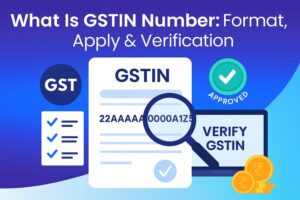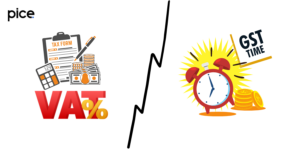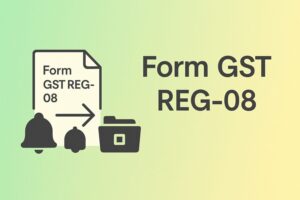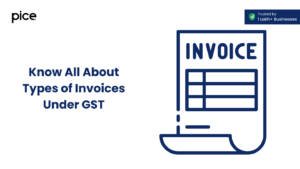Unregistered Dealer Invoice Format in GST
- 27 Nov 24
- 6 mins

Unregistered Dealer Invoice Format in GST
Key Takeaways
- Unregistered Dealer: Businesses below GST threshold limits are unregistered and cannot collect GST or claim ITC.
- GST Invoice Essentials: GST invoices must include mandatory fields like GSTIN, HSN codes, and tax details.
- Invoice Timelines: Invoices must be issued within prescribed timelines based on goods or services supplied.
- Invoice Revisions: Pre-registration invoices can be revised within a month of GST registration.
- Special Cases: Relaxed GST invoice formats apply to industries like banking and transport.
Invoicing is a crucial aspect for any business, regardless of its nature and size. Business owners and managers need to be very careful while issuing invoices, as all sorts of transactions must be included to maintain proper accounting records. Moreover, after the GST law has been imposed, registered business owners and service providers must generate GST-compliant invoices to operate legally.
In this blog, you will learn about the concept of an unregistered dealer under GST format. Also, we will discuss who should issue a tax invoice, the mandatory fields within an actual invoice, the invoicing process under special cases and other associated details.
Who is an unregistered dealer under GST?
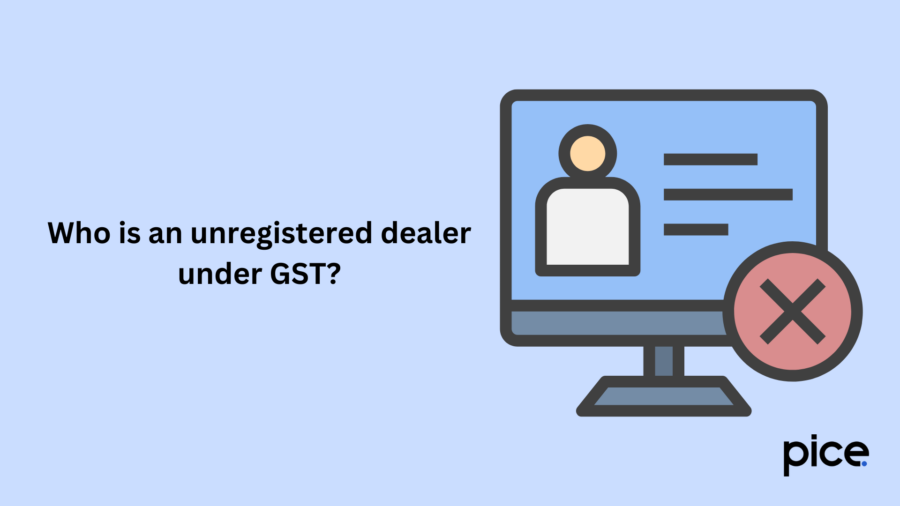
A person or business that has not opted for registration under GST is recognised as an unregistered dealer. It is a voluntary decision that one can make if their aggregate turnover falls below the prescribed threshold limit. The limit is ₹20 lakh for service-related businesses and ₹40 lakh for dealers of goods. Further, this limit can vary from one state to another.
An unregistered dealer is not eligible to obtain GST from their customers. Additionally, they cannot claim input tax credit on the purchase of raw materials for the business. Nevertheless, if these types of businesses are dealing with interstate supplies or engaging in online business, they must mandatorily undergo GST registration. Failing to do so will lead to penalties moving forward.
What is a GST invoice?
A GST bill or invoice depicts a list of supplies provided by a supplier who is registered under the GST Act. Against the supplies, one can find the respective due payments.
Who Should Issue a GST B2B Invoice?
As a GST-registered business owner, you are liable to present GST-compliant bills for sales of services or goods to your customers. Moreover, you should receive GST bills from your suppliers to claim the ITC later on.
What are the Mandatory Fields a GST Invoice Should Have?
While generating a tax invoice, all the particulars are addressed that need to be reported for claiming the tax credit. Having said that, the GST Council looks forward to the following fields in every single invoice:
- Invoice serial number
- Date of issuance
- Customer name
- Place of supply
- Billing and shipping address
- Customer and taxpayer’s GSTIN (when they are registered under the GST Act)
- Total invoice value
- HSN Code/ SAC Code
- Supply details stating their quantity, description, units delivered, etc.
- Taxable value alongside applicable discounts
- Categories of taxes available like SGST/ CGST/ IGST in addition to the GST rate levied
- Whether GST would be applicable on a reverse charge invoice basis
- Supplier’s signature
Adhering to the GST invoice norms, an unregistered dealer under GST invoice format should also feature a predetermined template. For invoices with a value greater than ₹50,000, the bills must display:
- Recipient’s name and address
- Delivery address
- State name and state code
It is a simple format that can be followed across multiple transactions for unregistered dealers.
By When Should You Issue Invoices?
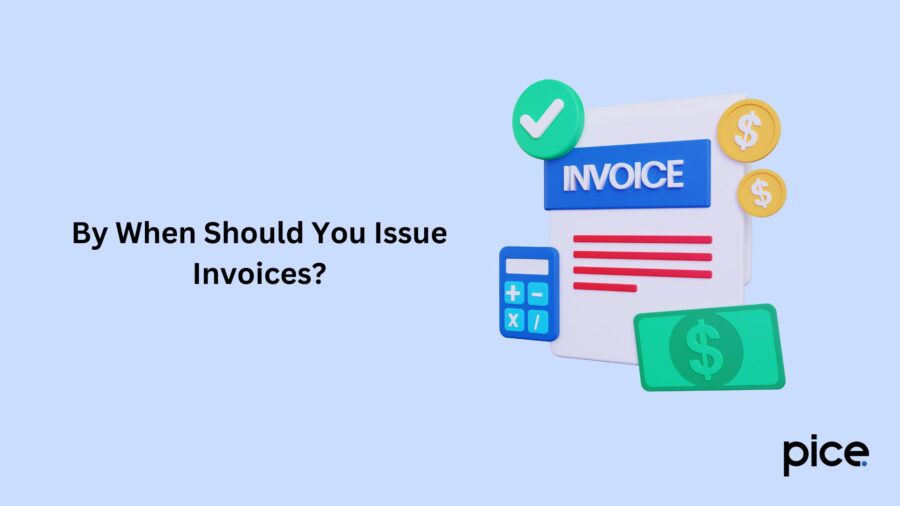
The GST law specifies various time limits for issuing different tax invoices, revised GST invoices, credit and debit notes. Below you can find the due dates for generating a tax bill:
| Types of Invoices | Due Dates |
|---|---|
| Goods Invoice (Normal Case) | On or before the date of removal/ delivery |
| Goods Invoice (Continuous Supply) | On or before the date of issue of the account statement/ payment |
| Service Invoice (Normal Case) | Within 30 days of supplying the service |
| Financial Service Invoice (Involving Banks and NBFCs) | Within 45 days of the supply of services |
Can You Revise Invoices Issued Before GST?
The revision of GST invoices is possible. Under the GST Invoice Law, all the registered dealers need to opt for provisional registration before receiving the permanent registration certificate.
If the invoice is issued between the date of implementation of GST and the issuance date of the registration certificate, then the supplier can issue a revised invoice online. However, it should be done within 1 month from the date of registration.
GST Invoicing Under Special Cases
The government generally provides certain relaxations on the GST invoice format in some cases involving passenger transport, banking, and many more.
Conclusion
Although an unregistered dealer under the GST invoice format is fixed, several customisations are still possible as long as the mandatory fields are included.
To incorporate these changes and in this way build a brand identity, you can use professional invoice-making tools available online. It will help streamline the accounting operations of your business.
💡If you want to streamline your payment and make GST payments, consider using the PICE App. Explore the PICE App today and take your business to new heights
 By
By 










